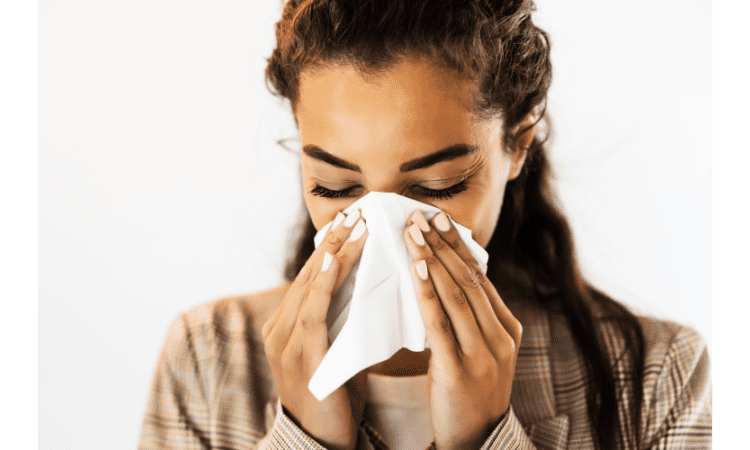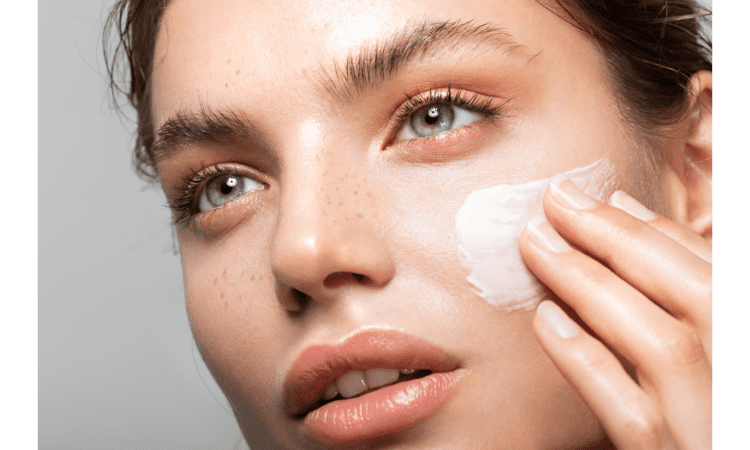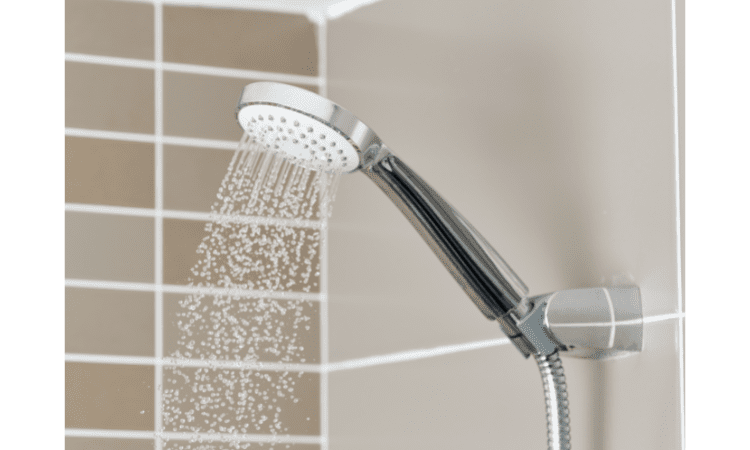
Showering in the morning is a good way to start your day. It helps get you ready for the day and can help you feel more energized and refreshed.
But there are also some drawbacks to showering in the morning. If you’re not careful with how hot you make your water, it could leave your skin dry and irritated. And if you don’t use gentle soaps, they could strip away the natural oils that help keep your skin soft and hydrated.
In this article, we’ll look at some of the pros and cons of showering in the morning, and how to minimize their impact on your skin by using products that are right for your skin type.
Disadvantages of showering in the morning
Allergies

One of the main drawbacks of showering in the morning is that it can lead to allergies. It’s common for people who have allergies to notice a worsening of their symptoms after showering in the morning. For those with a dust mite allergy, showering in the morning instead of at night may trigger symptoms. That’s because the more skin you shed in your bed, the more dust mites multiply.
“Dust mites are small insects that live in dust and thrive in warm, humid environments. They feed on dead skin cells, and when a person goes to bed without showering, they are providing a food source for these mites,” explains Maqbool. “As the mites multiply, they can trigger allergies and asthma symptoms in sensitive individuals.
Worse for the skin

Showering in the morning can be rough on your skin—especially if you’re someone who has dry or sensitive skin, or oily skin that tends to break out when it gets too hot and humid. This is because showering releases heat from your body into the air around you, which can make it feel hotter than usual. The heat in turn causes more sweat and oil production on your skin, which can lead to irritation and breakouts. Showering in the morning means you’re washing off all of your dead skin and exposing yourself to harmful bacteria. This can lead to a whole range of problems, including acne, eczema, and psoriasis. Showering in the morning can also make your hair look dull because it cuts off natural oils in your hair that give it shine and softness. The result is a dull, frizzy look that doesn’t last long throughout the day.
The sheets are dirty at night

Showering in the morning has one clear drawback, assuming you aren’t also showering at night: You’ll go to bed without washing away the day’s dirt and grime. It’s true that neglecting to shower at night can leave more dust, bacteria, dead skin, and sweat in your bed. When you spend a full day out and about, your skin accumulates dirt and sweat, and your hair collects dust and other particles. In case you go to bed without showering, all of that dirt and sweat will transfer from your body to your sheets, creating an environment that can be conducive to bacteria growth and skin irritation. If you shower at night, your sheets will be clean for you to sleep on. If you shower in the morning, you’ll have to make sure the sheets are clean before bedtime, or else they’ll be dirty when you wake up and see them again.
Do not sleep better

One of the biggest drawbacks of showering in the morning is that it can make you sleep worse. When you shower in the morning, you’re likely to come out feeling energetic and ready to go. This can make your body more alert than it wants to be at that time of day, so it’s not as easy for you to fall asleep when you go back to bed. When you shower in the morning, you’re waking up your body with a blast of hot water or cold air—which isn’t necessarily what your body wants. Your body naturally wants to stay asleep as much as possible, so it will try to fight against any sudden change by making you feel groggy and tired. Showering first thing in the morning can make it harder for you to doze off again when it’s time for bed later that night. Showering in the morning, especially first thing can make it more difficult to fall asleep at night. A hot shower can raise your body temperature and lower your heart rate, which can make it harder to fall asleep.
Some Common Questions People Ask about Showering in the Morning

What are the potential drawbacks of showering in the morning?
Showering in the morning can potentially strip your skin of natural oils, cause dryness, and lead to hair damage. It can also cause skin infections and acne breakouts. Additionally, showering in the morning can be time-consuming and may interfere with your morning routine.
Can a shower in the morning lead to dry skin?
Yes, showering in the morning can lead to dry skin as it can strip your skin of natural oils. To prevent this, it’s essential to use a gentle cleanser and avoid hot water when showering.
Does showering in the morning strip the skin of natural oils?
Yes, showering in the morning can strip your skin of natural oils, which can lead to dryness and other skin issues. To minimize this, it’s essential to use a moisturizer after showering and avoid harsh soaps and hot water.
Is it better to shower at night or in the morning for skin health?
It’s generally better to shower at night as it can help to remove dirt, oil, and other impurities that have accumulated on your skin throughout the day. Additionally, showering at night can help your skin to retain moisture and prevent dryness.
Can a shower in the morning cause acne or breakouts?
Yes, showering in the morning can cause acne or breakouts by stripping your skin of natural oils and disrupting the skin’s microbiome. To prevent this, it’s important to use a gentle cleanser and avoid hot water when showering.
Does showering in the morning increase the risk of skin infections?
Yes, showering in the morning can increase the risk of skin infections, especially if you share a shower with others. To reduce the risk of infection, it’s important to clean your shower regularly and use your own towel.
Can showering in the morning worsen eczema or psoriasis symptoms?
Yes, showering in the morning can worsen eczema or psoriasis symptoms by stripping your skin of natural oils and aggravating the condition. To prevent this, it’s important to use a moisturizer after showering and avoid harsh soaps and hot water.
Is it true that showering in the morning can affect the pH balance of the skin?
Yes, showering in the morning can affect the pH balance of the skin by disrupting the skin’s natural microbiome. This can lead to dryness, irritation, and an increased risk of infection. To maintain a healthy pH balance, it’s important to use a gentle cleanser and avoid hot water when showering.
Can a shower in the morning cause skin discoloration or uneven skin tone?
Showering in the morning is generally safe and unlikely to cause skin discoloration or uneven skin tone. However, if you have sensitive skin or are prone to hyperpigmentation, it’s important.
What are the potential skin and hair problems caused by showering in the morning?
Showering in the morning can lead to potential skin and hair problems such as dryness, irritation, and inflammation. This is because hot water and harsh soaps can strip the skin of its natural oils, which help to keep it moisturized and protected. Similarly, using hot water on the scalp can cause dryness and itchiness, leading to dandruff and other scalp conditions.
Does the temperature of the water used during morning showers affect skin health?
Yes, the temperature of the water used during morning showers can affect skin health. Using hot water can strip the skin of its natural oils, which can lead to dryness, irritation, and inflammation. It’s best to use lukewarm water when showering to avoid damaging the skin’s natural protective barrier.
How can showering in the morning disrupt the natural pH balance of the skin?
Showering in the morning can disrupt the natural pH balance of the skin by removing the natural oils and bacteria that help to keep it healthy. This can make the skin more susceptible to infections, dryness, and irritation. Using harsh soaps and hot water can also contribute to a disruption in the skin’s natural pH balance.
Can a shower in the morning lead to bacterial or fungal infections on the skin or scalp?
Showering in the morning can potentially lead to bacterial or fungal infections on the skin or scalp, particularly if the skin is already compromised or if the water used is too hot. This is because hot water and harsh soaps can strip the skin of its natural oils, which can make it more susceptible to infection. The warm and moist environment created in the shower can also promote the growth of bacteria and fungi. This can lead to skin conditions such as athlete’s foot, ringworm, or bacterial folliculitis. To avoid these problems, it’s important to use lukewarm water and gentle cleansers and to ensure that you dry your skin and hair thoroughly after showering.
How can the duration and frequency of morning showers affect skin and hair health?
The duration and frequency of morning showers can affect skin and hair health. Showering too frequently or for too long can strip the skin of its natural oils, which can lead to dryness and irritation. It can also cause the hair to become dry and brittle and can lead to scalp conditions such as dandruff. On the other hand, not showering frequently enough can lead to the buildup of dirt and oil on the skin and hair, which can cause clogged pores and acne. It’s important to strike a balance and shower only when necessary, and for a duration that is appropriate for your skin and hair type.
What are the effects of showering in hard water on the skin and hair?
Showering in hard water can have negative effects on the skin and hair. Hard water contains high levels of minerals such as calcium and magnesium, which can leave a residue on the skin and hair. This can cause dryness, and irritation, and can make the hair look dull and lifeless. Hard water can also cause the soap and other cleaning products to become less effective, which can lead to an increase in bacteria on the skin. To combat these effects, it’s recommended to use a water softener or a filter for your shower, or to use products that are specifically designed for use in hard water.
Best Time to have a shower according to the dermatologist
According to dermatologists, the best time to have a shower is in the evening, preferably before bedtime. This is because showering in the evening can help remove dirt, oil, and other impurities that have accumulated on the skin and hair throughout the day. It can also help to reduce the number of bacteria that are present on the skin, which can lead to acne and other skin conditions.
In addition, showering in the evening can help to relax the body and mind, which can lead to a better night’s sleep. The warm water can help to soothe sore muscles and reduce stress, which can help you feel more relaxed and comfortable. A good night’s sleep is essential for maintaining healthy skin, as it allows the body to repair and regenerate itself.
Showering in the morning can also be beneficial, as it can help to wake you up and make you feel refreshed for the day ahead. However, it’s important to be mindful of the temperature and duration of your shower, as hot water and long showers can be damaging to the skin and hair.
Ultimately, the best time to have a shower will depend on your personal preferences and lifestyle. If you tend to sweat a lot during the night, you may prefer to shower in the morning to feel fresh and clean for the day ahead. However, if you have dry or sensitive skin, it may be better to shower in the evening to avoid stripping the skin of its natural oils. It’s important to listen to your body and find a showering routine that works best for you.
Conclusion
In conclusion, showering in the morning has some drawbacks that should be taken into consideration. Hot water and harsh soaps can strip the skin of its natural oils, which can lead to dryness, irritation, and infection. In addition, the warm and moist environment created in the shower can promote the growth of bacteria and fungi, which can lead to skin and scalp conditions.
However, it’s important to note that the drawbacks of showering in the morning can be mitigated by taking the proper precautions. Using lukewarm water and gentle cleansers, and ensuring that the skin and hair are dried thoroughly after showering, can help to prevent dryness, irritation, and infection. It’s also important to be mindful of the duration and frequency of showers, as showering too frequently or for too long can have negative effects on the skin and hair.
Ultimately, the best time to shower will depend on your personal preferences and lifestyle. While showering in the evening may be preferable for some, others may prefer to shower in the morning to feel fresh and clean for the day ahead. The key is to find a showering routine that works best for you and to take the necessary precautions to maintain healthy skin and hair.











